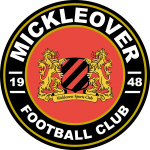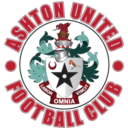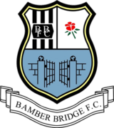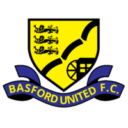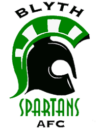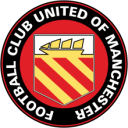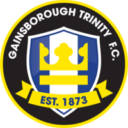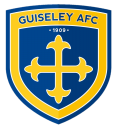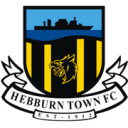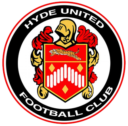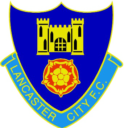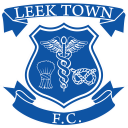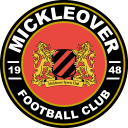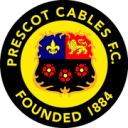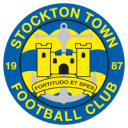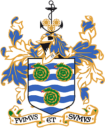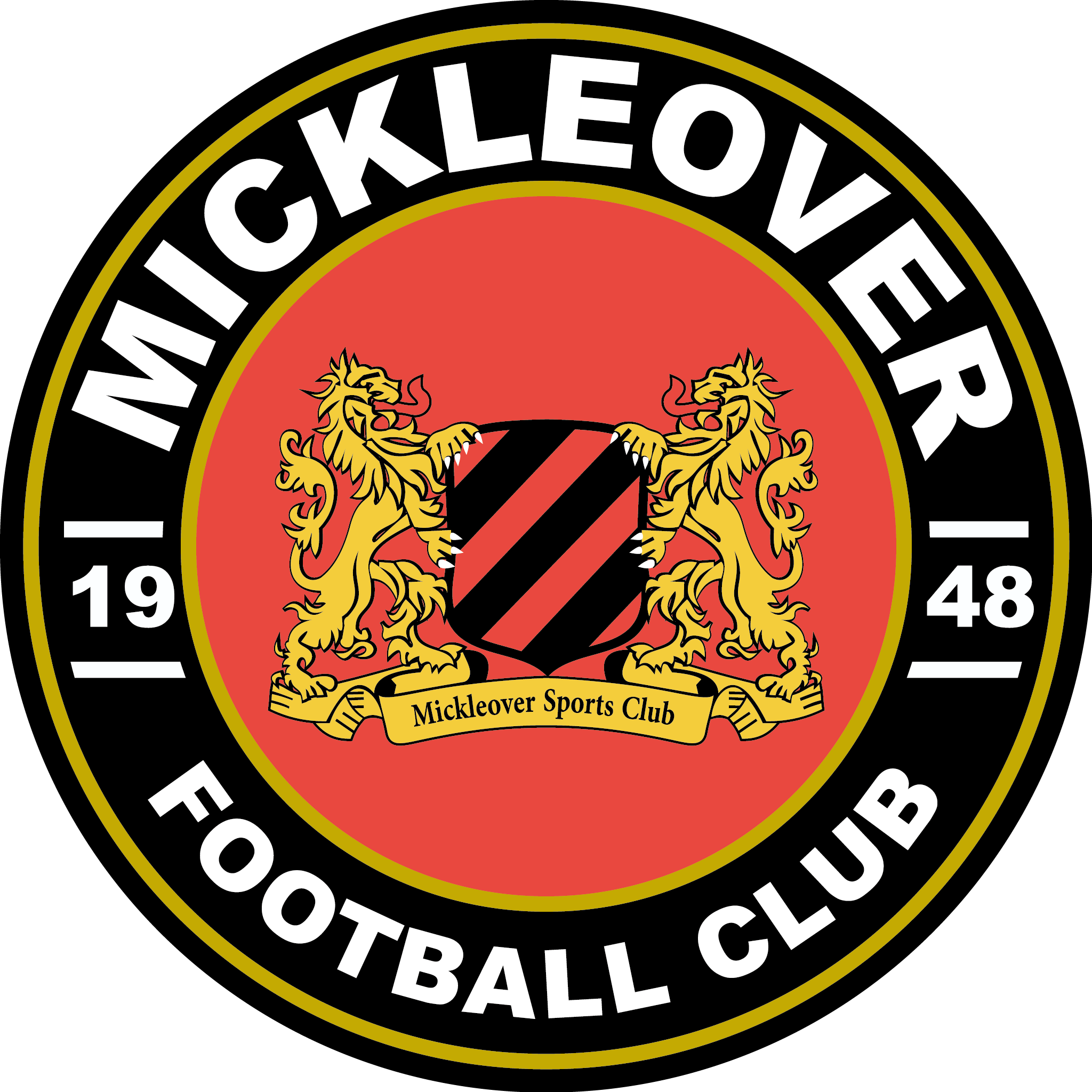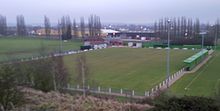
Season: 2022/23

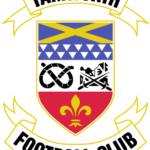
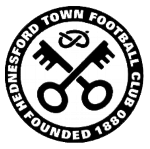
Hednesford Town
The club was formed in 1880 by the merger of two leading Hednesford clubs, the Red & Whites and Hill Top, and after many years in local competitions joined the Southern League in 1984.
2010–11 season
The middle of 2010 saw a complete change in the playing department with both of the lethal strikeforce that turned the previous season moving on to higher levels. Macclesfield Town snapped up Tyrone Barnett while Ross Dyer signed for Forest Green Rovers, joining up with another ex-Pitman in Reece Styche.
After a mixed start to the 2010–11 season that found the Pitmen again having much greater away form than at home, on Sunday 19 September 2010 the club announced it had “parted company” with manager Bernard McNally and a successor was being sought. That replacement would turn out to be Rob Smith and he was announced as manager of the club on Monday 27 September 2010 with Larry Chambers as his assistant, the duo having previously earned league promotion success with AFC Telford United.
This appointment triggered an upturn in the team’s on field success with the Pitmen forcing themselves into the promotion race with a run of form breaking a number of club records including:
- A goalscoring run of 32 league games (5 October 2010 to 2 May 2011)[1]
- A winning run of 9 (19 February 2011 to 26 March 2011)[2]
- Highest ever league victory with a 9–0 home win over Weymouth[3](23 October 2010).
The post-Christmas league form continued in the cup competitions with the club winning the Southern League Cup beating Hemel Hempstead Town over 2 legs, 5–1 on aggregate. The team followed up the cup success by qualifying for the playoffs after finishing the league season in 2nd position behind champions Truro City. This gave the Pitmen home advantage in the semi-final against Leamington, a game they won 3–1 to progress to the playoff final (again at Keys Park) against 3rd-place finishers Salisbury City. However, the season was to end with heartbreak for the Pitmen, after a 1–1 draw in the 90 mins and Danny Quinn putting them back into the lead, Salisbury equalised with the last kick of extra time before winning the game on penalties.
2011–12 season
Hednesford were transferred to the Northern Premier League Premier Division for this season, seeing a number of local derbies return to the fixture list. A consistent start to campaign saw the Pitmen sitting in the top four for the majority of the season, with a number of memorable game to look back on: a 5–4 win over local rivals Stafford Rangers, a remarkable 6–5 win over a strong Walsall side and a 2–1 win at league leaders Chester.
The Pitmen’s strong home form deserted them from December however, failing to win again at home for the remainder of the season. Hednesford finished the league in 5th position, but nominally in 4th due to Northwich Victoria’s expulsion from both the playoffs and league itself. Hednesford were beaten at Bradford Park Avenue 5–0 in the playoff semi-final on 28 April.
2012–13 season
Hednesford were promoted from the Northern Premier League to the Conference North during the 2012–2013. During this season they also won the Staffordshire Senior Cup and the Birmingham Senior Cup. The summer of 2012 saw a rebuild at Keys Park, with a number of the squad that had been together for the previous two campaigns being moved on. Linchpins in Chey Dunkley and Chris Clements saw their talents rewarded with moves up to the top-tier of non-league football (Kidderminster Harriers and Mansfield Town respectively). This triggered a near complete overhaul of the playing squad with 5 players that ended the 2011–12 season remaining at the club at the start of the new campaign.
Despite this the Pitmen started the season brightly, with an 8-game unbeaten run that was ultimately ended in some style in a 4–0 defeat to Worksop Town at Keys Park.
The Pitmen eventually had to settle for a second-placed finish and playoff berth, narrowly missing out on automatic promotion on goal difference to North Ferriby Utd. In the semi-final of the playoffs, they were drawn against AFC Fylde, a team they beat 2–1 on the final day of the regular season. After 6 goals and 120 minutes, the game went to penalties, with Hednesford prevailing 3–1. In the final, they faced F.C. United of Manchester, a team that were playing in their 3rd successive playoff final and are rivals of the Pitmen. Hednesford were victorious 2–1, in front of a record crowd of 4,412 at Keys Park, ensuring that the Pitmen will play their football in the Conference North in 2013–14.
2013–14 season
Hednesford finished fourth in the conference north and qualified for the play-offs where they faced Altrincham fc in a 2 legged semi-final. The first leg at Keys park finished 2–2 but Hednesford lost the second leg 2–1 away. Hednesford also reach the FA Cup 1st round proper where they were beaten 2–1 by league one side Crawley Town at Keys park.
2014-15 season
On 3rd March 2015 Hednesford beat AFC Fylde 2-0 at Keys park and looked likely to finish in a play-off position. However just 2 points from the final eight games saw the pitmen finish the season in a disappointing 8th place.
2015-16 season
Hednesford suffered a set back early on in the season when manager Rob Smith and his assistant Larry Chambers left the club to return to AFC Telford United. Chris Brindley took temporary charge until the club appointed former manager Bernard McNally. However McNally’s second spell at the club was short lived and he was later sacked after just one league victory. The next manager to be appointed was former Chelsea and Leicester player Frank Sinclair. After a 3-0 defeat at Stockport County in early March Sinclair offered his resignation which was accepted by the club only for him to be reinstated as manager two days later. Sinclair left club again in April after a 1-0 home defeat to Worcester and relegation looking inevitable. Despite a 2-1 away win at league champions Solihull Moors relegation was confirmed with 2 games remaining.
2016-17 season
Hednesford will play in the Evo-Stick Northern League Premier Division in the 2016-2017 season. Liam McDonald was announced as the club’s new manager on 9 May 2016, having left Redditch United FC.
Credit: Wikipedia.com
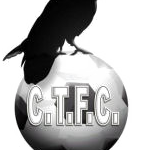
Coalville Town
Coalville Town Football Club were formed in 1926 as Ravenstone Miners Athletic, the latest in a long line of association football clubs from the village of Ravenstone. Nicknamed the Ravens, they played for many years in the Coalville & District Amateur League, and later the North Leicestershire League, where they won numerous honours. In 1991 this led to election to the Leicestershire Senior League Division One, following the construction of a new club house at their Ravenslea home. Following the local council’s refusal to grant permission for floodlights, the club took the decision to relocate to Coalville. A change of name followed to Coalville F.C., with the club becoming the first senior side in the town of Coalville since the demise of Coalville Town Amateurs in 1954.
In their second season in the Senior League the club clinched the runner-up spot and with it promotion to the Premier Division. In 2001 new manager Lee Harriman arrived and immediately led the club to the league title, a feat they repeated the following year which saw them promoted into the Midland Alliance for the 2003–04 season. In the 2004–05 season, the club entered the FA Cup for the first time ever and reached the first round proper where they narrowly lost to league side Wycombe Wanderers.[1] This feat was even more impressive given that the team had started their campaign in the extra preliminary round, making them only the second club in the entire history of the Cup to reach the first round proper from the very first stage[citation needed].
It was announced on 30 October 2006 that the club’s most successful manager, Lee Harriman, had stepped down as manager and been replaced on a temporary basis by coach Bob Stockley. On 20 November 2006, it was announced that Brendan Phillips (formerly of Nuneaton Borough, Bedworth United, Stafford Rangers and Halesowen Town) was to take over first team affairs. Phillips kept Coalville in the Alliance, but was sacked and replaced by former Coalville player Adam Stevens.
In 2010–11 Coalville reached the FA Vase final becoming the first Leicestershire team to ever achieve a place in the final. Having played in front of a capacity crowd of 1800 in the first leg and securing a 3–0 advantage over King’s Lynn, the Ravens then went on to become the first team this season to win at King’s Lynn taking the second leg 3–2 at the Walks stadium in front of 2354 fans. However, the final, 8 May 2011, ended in a 3–2 defeat to Whitley Bay in front of 8778 at Wembley. The victory secured a record third successive FA Vase title for Whitley Bay.
The week before the trip to Wembley the Ravens sealed the Midland Alliance title for the first time on goal difference from Tipton Town, both teams having finished the season on 100 points. Coalville had a goal difference of +100, superior to Tipton’s GD of +69.
The 2012–13 season saw Coalville win the Westerby Cup for the first, and to date, only time in the club’s history. The run to the cup involved 18 goals and ended with a 2–1 win against Loughborough Dynamo in the final, played at Leicester City‘s Walkers Stadium.
At the start of the 2014–15 season, Adam Stevens took the decision to stand down as manager after eight years in the job.[2] Two weeks later, Jimmy Gray was confirmed manager in his place.[3]
In 2015-16 Coalville secured promotion to the Northern Premier League Premier Division under the management of Tommy Brookbanks after they defeated Shaw Lane Aquaforce 3-1 in the play off final.
Credit: Wikipedia.com
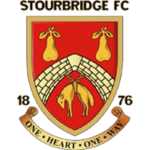
Stourbridge
The club was founded in 1876 and was originally known as Stourbridge Standard. By the late 1880s it is known that that they had changed its name to simply Stourbridge and competed in the Birmingham and District League, where reasonable success was achieved without actually gaining the league title, although the Worcestershire Senior Cup was won on three occasions.
The 1923–24 season was one of the best in the club’s history, as they clinched the Birmingham League championship and also won the Worcestershire Senior Cup yet again.
After World War II, The Glassboys enjoyed their greatest period of success in non-league football, as they carried off the Birmingham Combination Championship in 1952 and also won the Birmingham, Worcestershire and Herefordshire Senior Cups. The club returned to the Birmingham League in 1954 on the disbanding of the Birmingham Combination and were runners-up in 1955–56. The Birmingham Senior Cup was won for a second time in 1958–59 and the 1967–68 season saw the club achieve their own “double” in lifting both the Worcestershire and Birmingham Senior Cups.
Into the Southern League
In 1971 the club was elected to the expanding Southern League and met almost instant success under manager Alan Grundy in the 1973–74 season, with the Division 1 (North) title and the Merit Cup (for the league’s highest goalscorers) coming to Amblecote. Twin strikers Ray Haywood and Chic Bates each notched 50 goals that season and were transferred to Shrewsbury Town, where Bates served 13 years as both player and manager. Another highlight in 1973–74 was a tremendous run in the Welsh Cup, in which the team disposed of both Swansea City and Wrexham on their own grounds and then faced Cardiff City in a two leg final. A record crowd of 5,726 saw the Glassboys lose the home leg 1–0 and they also lost 1–0 at Ninian Park.
Stourbridge spent ten seasons in the Premier Division of the Southern League between 1974 and 1984, two centre-forwards were also sold in the 70s, Steve Cooper to Torquay United and Tony Cunningham to Lincoln City. Finishing reularly in the top six and under the management of Tony Freely, they won the Worcestershire Senior Cup for the 9th time with a victory over close rivals Kidderminster Harriers in 1981 with the Stourbridge born Brendan Drummond getting the winning goal in the second leg away to the Harriers to win 2–1 on aggregate. Stourbridge were one of the first English semi-professional clubs to tour the South East of the USA in the early Eighties.
Subsequent Midland Division form was mediocre too, despite three good FA Cup runs, and a disastrous run of results in 1987–88 led to a relegation spot, however fortune was on the club’s side and they were re-elected to the League in the close season. Stourbridge then went on from strength to strength, culminating in winning the Midland Division championship in 1991, although Southern League officials refused promotion due to the shared use of the ground by the local cricket club.
October 1997 saw a new Chairman at the club and his early enthusiasm in refurbishing the social club continued with many signings for the 1998–99 season under the guidance of new manager, Steve Daniels. The Glassboys spent much of the early part of the season in the top 3 whilst also reaching the FA Cup 4th qualifying round for the first time in 15 years, but the success was short lived as budget cutbacks saw many of the more experienced players moving on. In 2000 a new owner came to the club, and swiftly appointed Mark Serrell as chairman, along with FA Qualified coach and ex-Birmingham City player Mark Harrison as manager. Despite an influx of new players, continued poor results meant Stourbridge’s 29-year spell at Southern League level ended with defeat in the last game of the season at Hinckley United in May 2000.
Re-grouping in the Midland Alliance
The club began its first ever spell in the Midland Football Alliance by finishing in fifth place and claiming the League Cup by defeating Bridgnorth Town following a dramatic penalty shoot-out after the final had finished in a 1–1 draw. The 2001–02 season began well with the lifting of the Joe McGorian Cup after a 2–1 victory at league champions Stourport Swifts, however in November 2001 the club parted company with Mark Harrison, with the former Bilston Town boss Joe Jackson taking over as manager. On the final Saturday of the season, the Glassboys were crowned champions in dramatic fashion as a last gasp stoppage time goal by Brian Gray earned the point needed at Stafford Town to pip Bromsgrove Rovers to the title. Although Serrell left the club the following January, to be succeeded as chairman by Stephen Hyde, Jackson once more led the club to the Midland Football Alliance championship in 2002–03, although promotion was refused due to the ground grading regulations in place at the time.
Jackson declined to try for a hat trick of titles in 2003–04 and was replaced by well-known local duo, Jon Ford and Gary Hackett, who had enjoyed two successful seasons in charge at Bromsgrove Rovers. With many players moving on, the new management team had to rebuild the side from scratch, but an encouraging second half of the season saw the Glassboys finish a creditable 9th. The following season saw a memorable run in the FA Vase, culminating in a quarter-final defeat at A.F.C. Sudbury in the quarter-final before finally succumbing to a 4–1 defeat after extra time. In May 2005 Hackett took sole charge of the team after Ford decided to step down due to work and family commitments. With the likely re-organisation of the non-league pyramid at Step 4 level, the club looked to mount a strong push for promotion, however a mixed start to the campaign left Stourbridge lying in mid-table by December. After a poor start, a run of 14 league games unbeaten was enough to clinch a runners-up spot and with it promotion back to the Southern League. Victories over Burton Albion and Moor Green also saw the team reach the Birmingham Senior Cup Final for the first time in 30 years, although they succumbed to a 1–0 defeat to Willenhall Town.
Back in the Southern League
Stourbridge’s first season back in the Southern League Midlands Division in 2006–07 saw them finish in seventh place. The team also reached the final of the Worcestershire Senior Cup, but following a goal-less draw at Amblecote in the first leg of the final against Evesham United, they were beaten 2–1 after extra time away in the second leg to again suffer cup final disappointment.
The 2007–08 season saw Stourbridge seal a third-place finish in the Midlands Division to reach the play-offs. A narrow 1–0 win at home to Sutton Coldfield Town took Stourbridge through to the final away at second placed Leamington and in front of a crowd of 1,634, a goal from Leon Broadhurst four minutes from the end of extra-time sealed a 2–1 victory to earn Stourbridge a second promotion in three seasons and a return to the Premier Division of the Southern League after a gap of 24 years.
After a difficult start to life in the Premier Division which saw Stourbridge lie at and around the foot of the table, they eventually acclimatised to life at the higher level and secured another season in the Premier Division with a final placing of 16th. Stourbridge also reached their third senior cup final in four seasons in a Birmingham Senior Cup run which included a 4–3 home win after extra-time over Wolverhampton Wanderers and a semi-final victory on penalties at Tamworth after a goal-less 120 minutes. However Stourbridge once again suffered heartbreak in the final as Hednesford Town defeated the Glassboys 2–0 at Burton Albion‘s Pirelli Stadium.
In the 2009–10 season, Stourbridge reached the FA Cup first round for the first time in their 133-year history and were drawn at home to Walsall. The game ended in a 1–0 defeat for Stourbridge in front of 2,014 fans (the biggest gate at Amblecote for 35 years).[1]
In the 2010–11 season, Hackett guided the club to eighth in the league after a solid season, and also the final of the Worcestershire Senior Cup, where they defeated Worcester City 2–0 at Aggborough Stadium. In the 2011–12 season, the club won their way through four qualifying rounds to again reach the first round of the FA Cup.[2] They were drawn away to League Two side Plymouth Argyle where they drew 3–3 at Home Park to earn themselves a replay and a place in the second-round draw.[3] The replay at the War Memorial Ground was chosen for live coverage by ESPN, netting the club over £33,000. Two temporary stands were erected and a highest crowd for 37 years of 2,519 attended the game that saw Stourbridge win 2–0 thanks to goals from Paul McCone and Sean Evans.[4] The victory meant it was the first time the club had reached the Second Round of the competition, and the club were dealt a home tie against League One club Stevenage.[5] The game ended 3–0 to Stevenage, with the game being played in front of 3,067 following the erection of a third temporary stand.[6][7] In the 2012–13 season, Stourbridge had excellent league form throughout the season and finished 2nd behind champions Leamington, but there was heartbreak in the playoff semi-final when they lost to Gosport Borough 2–1 at home. In the 2013–14 season, Stourbridge were the lowest ranked team in the second round proper of the season’s FA Cup. They produced a strong showing in the league, and although the heights of the previous season were not reached, 5th place was achieved and Stourbridge once again had a shot at promotion in the end of season playoffs. This time, Chesham United defeated The Glassboys 2–1 in the semi-final to again dash hopes of promotion.
During the close season, Stourbridge were moved across to the Northern Premier League from the 2014–15 season.
In the 2015–16 season, Stourbridge again made their way through four qualifying rounds, to reach the first round proper of the FA Cup for the fourth time in seven seasons. Along the way they beat rivals Kidderminster Harriers 3–0 at home in the fourth qualifying round. In the first round of the FA cup they were drawn away to Dover Athletic, the game finished 2-1 in the Glassboys’ favour. The second round draw gave them a home tie against Eastleigh, which Stourbridge lost 2-0.
Credit: Wikipedia.com
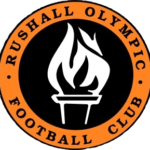
Rushall Olympic
Although football had been played in the village for at least 20 years previously, the earliest known reference to Rushall Olympic Football Club is in local newspaper reports on matches from the 1893–94 season. The club joined the Cannock & District League in 1895, finishing as runners-up in their first season and later joined the Junior (where they were champions in 1903–04), Amateur, Parks and Senior sections of the Walsall & District League.
During the inter-war years the team won a number of local honours. At this time the team comprised mainly local colliery workers and played on a field behind the Miners Arms pub in Rushall and changed in the pub itself. However, some time prior to World War II the club disbanded.
Post World War II
In 1951, a group of local young men decided to reform the club. They approached the proprietor of a local fish and chip shop for permission to use his premises as their headquarters and secured the use of Rowley Place as a home ground. The club joined the Walsall & District Amateur League, where the team won the Second Division championship in 1952–53, and later the First Division championship in 1955–56, after which they gained promotion to the Staffordshire County League (South) where they won the Second Division title at the first attempt.
Following promotion to the First Division, the club won four championship titles between 1960 and 1965. In 1975, in a bid to gain a higher league status, the club decided to move three miles away to the Aston University Sports Ground, just off the main A34 Walsall to Birmingham road. Meanwhile, the club obtained the lease on some land in Daw End, Rushall, and the new Dales Lane ground was officially opened on Sunday 14 August 1977.
The club were accepted into the West Midlands (Regional) League in 1978, and won the First Division title in 1980. The club enjoyed fourteen seasons of moderate success in the Premier Division, with a highest finish of fifth place achieved in season 1988–89. In 1994 the Pics became founder members of the new Midland Football Alliance. Although the late 90s brought only mid-table performances in the league, the Pics did defeat the then Southern League club Rocester at the Bescot Stadium, home of Walsall in a penalty shoot-out to lift the Walsall Senior Cup in 2000.
After finishing in second place in both 2000–01 and 2002–03, the Pics finally claimed the league title in 2004–05 and with it promotion to the Southern League Division One West. They were then transferred to the Southern League Division One Midlands for the 2006–07 season where they stayed for two years, qualifying for the playoffs in their last season by finishing 5th.
Due to the restructuring of Northern Premier League Division One, they were transferred yet again to the NPL Division One South for the 2008–09 season where they again finished 5th and qualified for the playoffs. They were also unsuccessful in achieving promotion this time. Manager Paul Holleran then left the club to be replaced by Neil Kitching who started his first season brightly before tailing off to finish in mid-table and lost in the final of the Walsall Senior Cup.
Despite further budget restriction Kitching supported by a restructured support and relatively youthful support team including Nick Amos and Ian Cooper, they went on to finish 3rd in the 2010–11season and reached the playoff final, beating Brigg Town 3–0 in the semi final. A 2–0 victory over Grantham Town in the final saw Rushall Olympic to reach Northern Premier League Premier Division and Step three football for the first time.
The first season at this higher level saw Rushall Olympic finish 8th in the league. They reached the final of three cup competitions; the league cup (where they lost to North Ferriby United after extra time), the Staffordshire Senior Cup (where they lost to Kidsgrove Athletic) and the Walsall Senior Cup which they retained. Rushall also equalled their best ever performance in the FA Cup reaching the fourth qualifying round where they suffered a defeat at the hands of Stourbridge.
In 2012–13 Rushall made their debut in the first round proper of the FA Trophy having qualified with victories over Woodford United, Chasetown and Droylsden. Their reward was a trip to Wrexham where they suffered a defeat against a team that went on to win the final of the competition. In the League Rushall again were on the verge of the play offs finishing in 6th position but failed to make the end of season competition.[2]
In 2013–14 Rushall Olympic made the 4th Qualifying Round of the FA Cup before losing out at Grimsby Town. Rushall eventually finished in 7th place in the league narrowly missing out on the play offs. However, there were two cup final appearances. The Pics lost out in the final of the Walsall Senior Cup but won the Staffordshire Senior Cup beating Port Vale at Vale Park by two goals to one.
At the end of the season the club amicably parted company with manager of five years Neil Kitching. His assistant Nick Amos also left the club on the best of terms. Rushall soon moved to appoint former West Bromwich Albion and Bolton Wanderers midfielder Richard Sneekes as manager with Steve Hinks as his assistant.[3]
Credit: Wikipedia
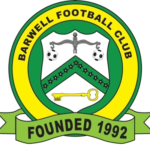
Barwell
The club was established in 1992 as a merger of Hinckley of the Midland Combination Premier Division and Barwell Athletic of the Leicestershire Senior League Premier Division;[2][3] the new club took Hinckley’s place in the Midland Combination.[4]
In 1994 Barwell were founder members of the Midland Alliance,[4] and went on to win the League Cup in 2005–06, beating Leamington 3–1 in the final. After finishing as runners-up in 2008–09, they won the league the following season, earning promotion to Division One South of the Northern Premier League.[4] Their first season in the division saw them win the title, earning promotion to step three of the National League System. Instead of playing in the Northern Premier League’s Premier Division, the club were moved to the Premier Division of the Southern League.[4] However, two seasons later, they were transferred back to the Northern Premier League.[4]
In 2015–16 the club reached the first round of the FA Cup for the first time, eventually losing 2–0 at home to Welling United.[4]
Credit: Wikipedia.com
